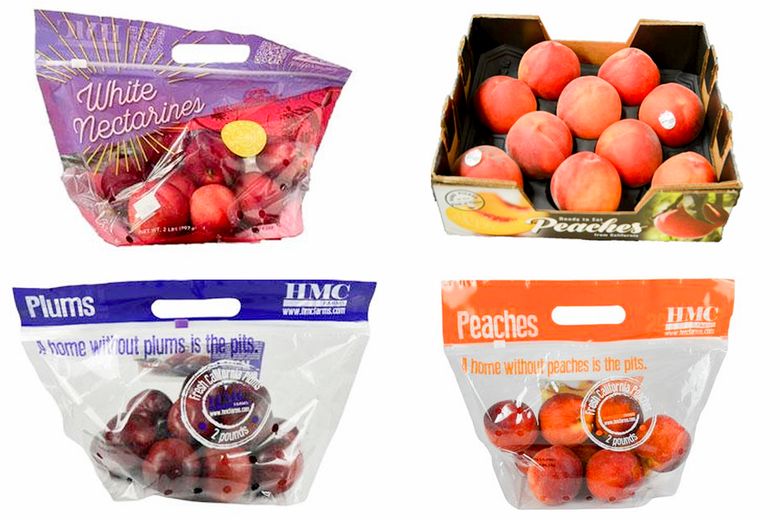
A California produce company has voluntarily recalled its whole peaches, plums and nectarines in connection with an outbreak of listeria that has led to one death and 10 hospitalizations since 2018, according to a food safety alert published by the Centers for Disease Control and Prevention.
The CDC’s food safety alert on Monday came three days after the company, HMC Farms, told the Food and Drug Administration that it was voluntarily recalling the fruits because of a possible health risk. The recalled fruits were sold across the country in 2022 and 2023, from May 1 to Nov. 15 each year. The fruits were sold individually and in two-pound bags that were marked “HMC Farms” or “Signature Farms.”
“Although healthy individuals may suffer only short-term symptoms such as high fever, severe headache, stiffness, nausea, abdominal pain and diarrhea,” the company’s recall announcement reads, “listeria infection can cause miscarriages and stillbirths among pregnant women.”
In a statement Monday, a spokesperson for HMC Farms said: “Our hearts go out to those affected by the outbreak. We are working tirelessly with the FDA to investigate how the contamination happened.”
The first illness in the outbreak occurred in August 2018, according to the CDC One other person got sick that year; two more people fell ill in 2019; four in 2020; one in 2022; and two in 2023. One person died, though officials did not say when. Ten people have been hospitalized.
The people who have gotten sick lived in seven states: California, Colorado, Kansas, Illinois, Ohio, Michigan and Florida. Of the sick people, 73% were 65 years old or older. One of the people who got sick became ill during pregnancy and experienced preterm labor.
The CDC said it was likely more people had been sickened because of the outbreak and that people in other states might also have been affected, as some people recover without medical care or aren’t tested, according to officials.
Listeria, a bacteria that contaminates many foods, is the third leading cause of death from foodborne illness in the United States. People who are pregnant, newborns, older adults and people with weakened immune systems are most likely to experience serious illness once infected with the bacteria.
Federal investigators are “working to determine if any additional fruit or products made with this fruit may be contaminated,” according to the CDC’s food safety alert.
In the meantime, authorities have recommended that people check their homes for the recalled fruit and either throw it away or return it to the store. The food safety alert included a list of which stickers were on the recalled fruits that were sold individually.
Officials also recommend that people clean places that have come in contact with the recalled fruit, including refrigerators where listeria can live and spread easily to other foods or surfaces. Freezing will not eliminate or reduce the bacteria.
"fruit" - Google News
November 22, 2023 at 03:09AM
https://ift.tt/SyuxvJH
California company recalls whole fruits amid listeria outbreak - The Seattle Times
"fruit" - Google News
https://ift.tt/INYXtPj
https://ift.tt/hLCvnQP
Bagikan Berita Ini














0 Response to "California company recalls whole fruits amid listeria outbreak - The Seattle Times"
Post a Comment